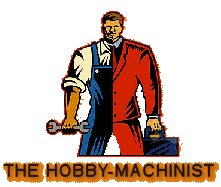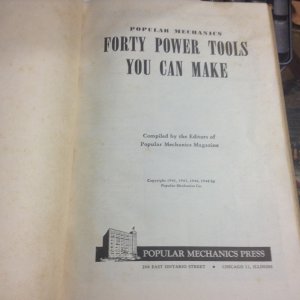Hello everyone!
I'm planning on setting up a very small benchtop metalworking shop over the next few years. I want to be able to work on material sizes from watchmaking to small models. The catch, however is that I'm going to do it from scratch - LITERALLY.
A few years ago I broke my back and ended up on long term disability, effectively retiring me at 33 years o age. I started losing my mind without something to take up my time so I started to get into metalworking. The problem is, being disabled, I only have maybe 50-150$ a month to invest in my shop. On the upside I'm a skilled woodworker and I have access to some bigger machines at the local makers space if I need them.
My plan is to start with a surface plate and some nist certified gauges and work my way up through all the basic steps of accuracy, from squares and rules, to dial indicators, all the way up to a mini drill press, lathe, and mill one day.
So my first question is this- if you had to build a machine shop from scratch on a desert island, with only a surface plate and gauges to reference, how would you start?
Cheers!
PS - I'm aware this is totally crazy and it's going to take many, many years, but that's sort of the point. I have all the time in the world, next to no money, and a solid understanding of basic engineering.
I want to see how far I can take things.
I'm planning on setting up a very small benchtop metalworking shop over the next few years. I want to be able to work on material sizes from watchmaking to small models. The catch, however is that I'm going to do it from scratch - LITERALLY.
A few years ago I broke my back and ended up on long term disability, effectively retiring me at 33 years o age. I started losing my mind without something to take up my time so I started to get into metalworking. The problem is, being disabled, I only have maybe 50-150$ a month to invest in my shop. On the upside I'm a skilled woodworker and I have access to some bigger machines at the local makers space if I need them.
My plan is to start with a surface plate and some nist certified gauges and work my way up through all the basic steps of accuracy, from squares and rules, to dial indicators, all the way up to a mini drill press, lathe, and mill one day.
So my first question is this- if you had to build a machine shop from scratch on a desert island, with only a surface plate and gauges to reference, how would you start?
Cheers!
PS - I'm aware this is totally crazy and it's going to take many, many years, but that's sort of the point. I have all the time in the world, next to no money, and a solid understanding of basic engineering.
I want to see how far I can take things.


